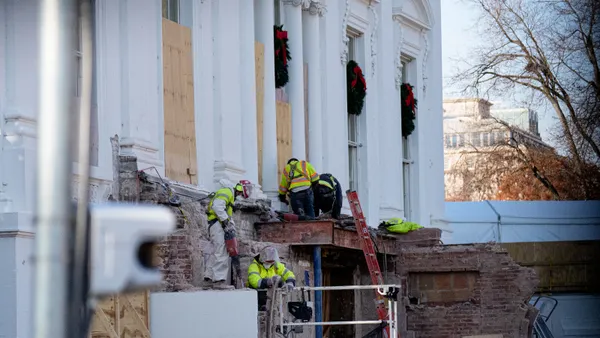The United Brotherhood of Carpenters (UBC) has levied a serious charge against the U.S. construction industry — that it is shorting the American taxpayer to the tune of up to $2.6 billion each year by making under-the-table payments to more than a million workers. In Texas alone, the losses reportedly top $1 billion.
Prevailing wage proponents and research group Smart Cities Prevail provided the estimates to the UBC.
The UBC adds to that figure about 300,000 independent contractors that the organization maintains are really misclassified employees, forced to work as independents so that employers don’t have to pay them benefits, cover them with workers’ compensation insurance or make federal and state tax payments on their behalf.
"That’s shocking,” said Frank Spencer, UBC general vice president. "Think about it: The number of construction workers forced to work off-the-books is about four times greater than the number of misclassified workers. There’s no mistaking the blatant tax fraud.”
Small, legitimate independent contractors, however, do have a place in the industry, providing critical services and often supplementing the construction industry labor pool, a sentiment echoed by Kristen Swearingen, the Associated Builders and Contractors' vice president of legislative and political affairs.
“Independent contractors are an important part of the construction industry, and ABC supports efforts to provide a clear, concise and reasonable definition thereof,” Swearingen told Construction Dive. "Any independent contractor reform effort must recognize that independent contractors are necessary, productive participants in the construction industry and their ability to contribute to the marketplace must be preserved.”
Generally, in order to qualify as an independent contractor under the Internal Revenue Service’s rules, the individual must be free to control the details of how he or she accomplishes the work.
Some construction companies — often big subcontractors that need a large, steady supply of workers — use “labor brokers,” who secure the necessary off-the-books employees for them. Being able to tap a pool of cheap labor allows those subs to underbid the competition because they’re not paying the same taxes, insurance and benefits other companies have to pay.
In August of last year, for instance, the attorney general for the District of Columbia sued Florida electrical contractor Power Design for allegedly misclassifying more than 530 construction workers as independent contractors through the use of two labor brokers, both of which are also defendants in the legal action.
In order to draw attention to the issue, the UBC and its affiliates are planning the Construction Industry Tax Fraud Days of Action in various locations throughout the U.S. and Canada from April 13 through April 15. During this time, the organization will hold demonstrations, sponsor jobsite actions and lobby public officials.
”Tax fraud in the construction industry affects all of us,” Spencer said. “That’s money that can take care of our veterans, rebuild roads, bridges and schools, pay police, firefighters or teachers, or pay down the national debt. It can shore up Medicare and Social Security so people can retire in dignity. We are being cheated out of all of that because of the high degree of tax fraud.”












